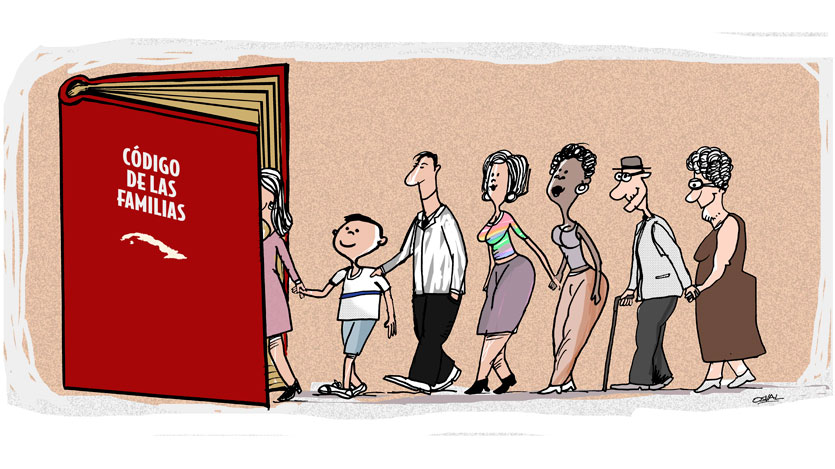
HAVANA, Cuba, Dec 27 (ACN) The intense judicial and procedural reform developed in Cuba this year has promoted far-reaching, cross-sectional, Constitutional social transformations in favor of equality, inclusion, non-discrimination and non-violence to protect the rights of women, children, teenagers, the disabled and the elderly.
The legal system trickles down to every other field and, since neither of them can be isolated, interaction and communication between the various legislative groups is essential to achieve completeness and consistency in these changes, Ana María Álvarez-Tabío, senior professor and head of the School of Law of the University of Havana, told ACN.
For example, the Criminal Procedure Law promotes a differentiated treatment of young people, expands the presence and protection of victims in the exercise of their rights, and provides additional safeguards to those who may be subjected to violence, for instance, restraining orders.
The Procedural Code, on the other hand, gives judges effective tools to secure property and order injunctions against individuals, with special relevance in family cases, in order to protect the best interests of children and adolescents as well as those of the disabled and the victims of gender or family violence involving minors and vulnerable subjects.
It also recognizes mediation as an alternative to judicial solution and empowers the court to adopt a special treatment in the case of family matters, due to the importance of reaching agreements outside the court system and preserving family harmony.
Alternative dispute resolution methods are also legitimized in the Law of the Courts of Justice, which advocates the use of conciliation for a more rational and expeditious application of justice in accordance with the interests of the parties.
However, the Family Code Project is the most complete body in terms of social transformation. It will be submitted to popular consultation from February to April and then to the National Assembly of People's Power for its subsequent referendum.
Family lawyers, jurists and academics alike have hailed this regulation as one of the most advanced in the world because of its a multidisciplinary approach to the protection of families, the stress it lays on human dignity and affection, and its respect for international treaties to which Cuba is a party.
“This Code gives more rights to all persons without making any distinction or imposing any model, and it also contributes to depose patriarchy as a means of oppression and discrimination,” said Mariela Castro Espín, director of the National Center for Sex Education.
Likewise, a Decree-Law on maternity involving working women and family responsibility was enacted to guarantee these future mothers medical care during pregnancy and pre- and post-natal maternity leaves, as well as to facilitate breastfeeding and proper child care. It also regulates monetary, economic and social benefits until the child reaches its first year of life and protects the father or other relative in charge of the child's care in the event of the mother's death.
Also in 2021, the Official Gazette published regulations to guarantee legal counsel to the homes for unprotected children and train the staff of these centers, foster families, social workers and other possible actors involved.
Other relevant decree-laws at this stage dealt with social security for self-employed workers, members of non-agricultural cooperatives and the MSMEs for the sake of gender equality and women's empowerment.
Also of special significance was the entry into force in March of the National Program for the Advancement of Women, which seeks to establish a single body of actions related to gender issues in keeping with the principles and postulates of the Constitution.
The Official Gazette also published the Integral Strategy for the Prevention of and Action on Gender Violence, including a section dealing with aggressive behaviors within the family, whose patriarchal structure makes it one of the most violent social institutions, in the opinion of experts.
For 2022 the legislative chronogram also envisages socially significant regulations such as the Housing Law, the Food Security and Nutritional Sovereignty Law, the Law for the Protection of Constitutional Rights, the Public Health Law, and the Penal Code, among others.
Sidebar

 Agencia Cubana de Noticias
Líder en información nacional
Agencia Cubana de Noticias
Líder en información nacional








Nos reservamos el derecho de no publicar los comentario que incumplan con las normas de este sitio